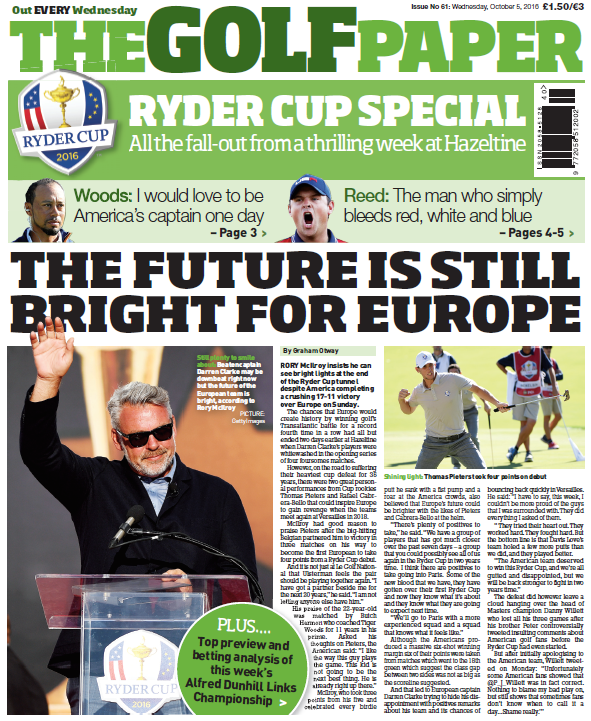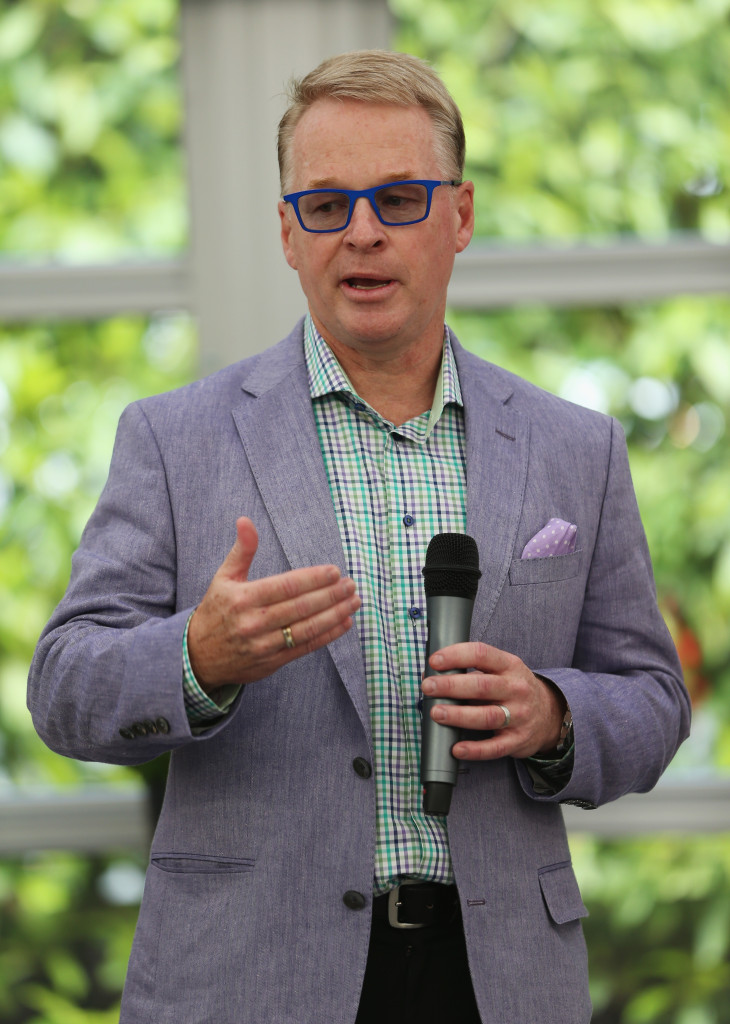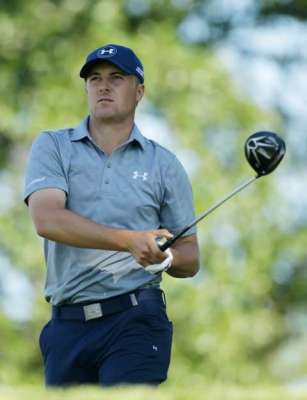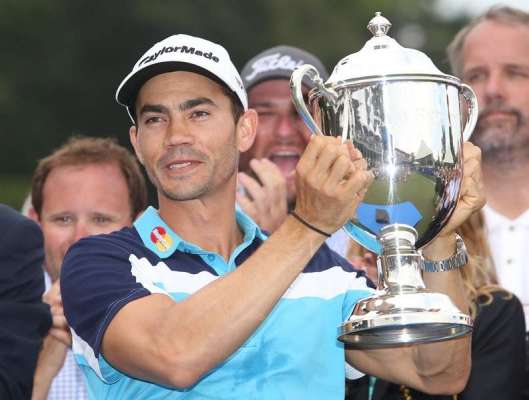Featured
New European Tour CEO Keith Pelley needs to challenge the US grasp on world golf
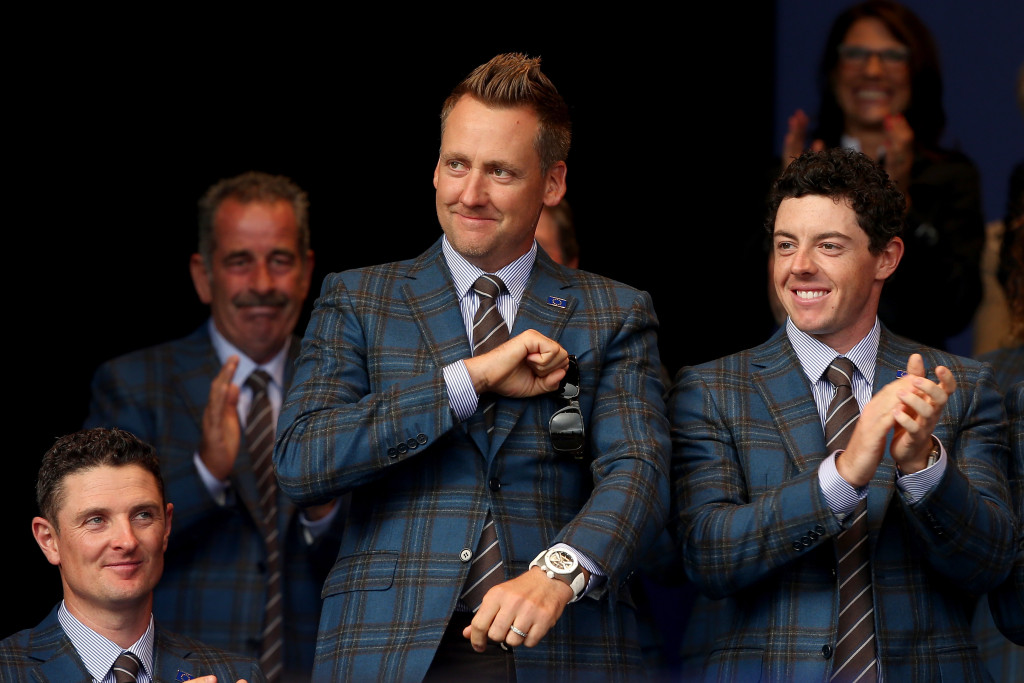
One-sided success by Europe in the Ryder Cup will come as comfort to new European Tour chief Keith Pelley, who faces issues elsewhere (Photo by Andrew Redington/Getty Images)
The performance of Europe’s Ryder Cup heroes apart, the past decade has seen the world of golf dominated by the US Tour and its forceful commissioner, Tim Finchem.
And the timing to the exact week of Keith Pelley taking office as the new chief executive of the European Tour at Wentworth could not be more ironic.
The 51-year-old Canadian will be behind his new desk while all of Europe’s journeymen are having a week off because there is no tournament for them to play, and the best golfers on the planet are gathered at Akron in Ohio for the Bridegstone Invitational World Golf Championship (WGC).
When the biggest tours got together in the late 1990s to design the big-money and prestigious WGC series to act as the second tier behind the Majors, the original aim was to spread the glamour around the globe.
Golf fans at Valderrama in Spain, the Grove near London, Mount Juliet in Ireland and even the Metropolitan Club in Melbourne were given a taste of the action. But their entertainment was short-lived.
By securing a series of big-money sponsors, Finchem soon had all the WGCs moved to the States. It was only in 2009 that the WGC series spread its wings worldwide again, but there were two elements which did not reflect well on the European Tour’s efforts to expand into the growing Middle East and eastern markets.
The tournament given the new WGC status was the HSBC Champions event in Shanghai, which for the previous four years (and still does) had formed a key part of Europe’s end-of-season final series in the Race to Dubai.
The switch closed the door for many European players to play for a £5million jackpot, while throwing the doors wide open to Finchem’s American players.
And in 2013 he went even further, using the HSBC media preview day in Shanghai as the stage from which he would launch his new PGA China Tour, undermining the work done over the years by the European Tour in sanctioning events like the China Open in golf’s fastest growing market.
In April, in an interview with The Golf Paper, David Williams – who took over as the European Tour’s chairman in 2014 – said he hoped he could expand in future in influence with the Asian, Australian and South African tours.
Since then there has been no public demonstration of moves in that direction, but hopefully in Pelley he now has a strong right-hand man who will create a strategy that not only appeals to the expanding markets, but also will stand up to Finchem and the US Tour’s dictatorial tactics.
Improving the strength and image of the European Tour worldwide is one target, but steps must also be taken soon to stop the flow of top players away from Europe to the US Tour, which now includes a long list of Ryder Cup stars playing full-time.
It is something of an enigma that Rory McIlroy, Ian Poulter, Paul Casey, Lee Westwood and others are based full-time in America, yet in alternative years make sure they play just enough events on the Eastern side of the Atlantic to earn their Ryder Cup caps.
Achieving that would not be easy, but two moves could strengthen European fields. The first would involve discussion with the government on a break from taxing overseas sportsmen visiting England.
Under its clauses, golfers from overseas must not only pay tax on any prize money they win at tournaments in the UK, but also pay more tax on a percentage of all the income they received annually from sponsorship like equipment and clothing.
To avoid a backlash from the country’s many soccer fans, Labour made an exemption from footballers visiting the country to play in top-level club matches in the Champions League.
And athletes taking part in both the Olympics in London and the Commonwealth Games in Edinburgh were exempt as well. But players like Padraig Harrington and Sergio Garcia have missed the showpiece PGA Championship at Wentworth because of the tax.
And whenever he played at his prime in The Open, Tiger Woods knew he would be paying Whitehall more money than he could ever hope to win at the only Major played outside America.
However, there is one basic disadvantage that will make Pelley struggle to attract the top players to take part in more European Tournament events, and that is the size of the purses currently on offer.
Last weekend was a good example when, despite Paul Lawrie’s great initiative to start up a matchplay event in his home town of Aberdeen, the purse was only €1 million compared to £6.7 million available at the Quicken Loans National in Virginia. Bridging that gap could take years, but given their massive national oil incomes, surely Dubai and Abu Dhabi could add more value to the annual Desert Swing, and there is a lot of new money floating around in industry in India and China.
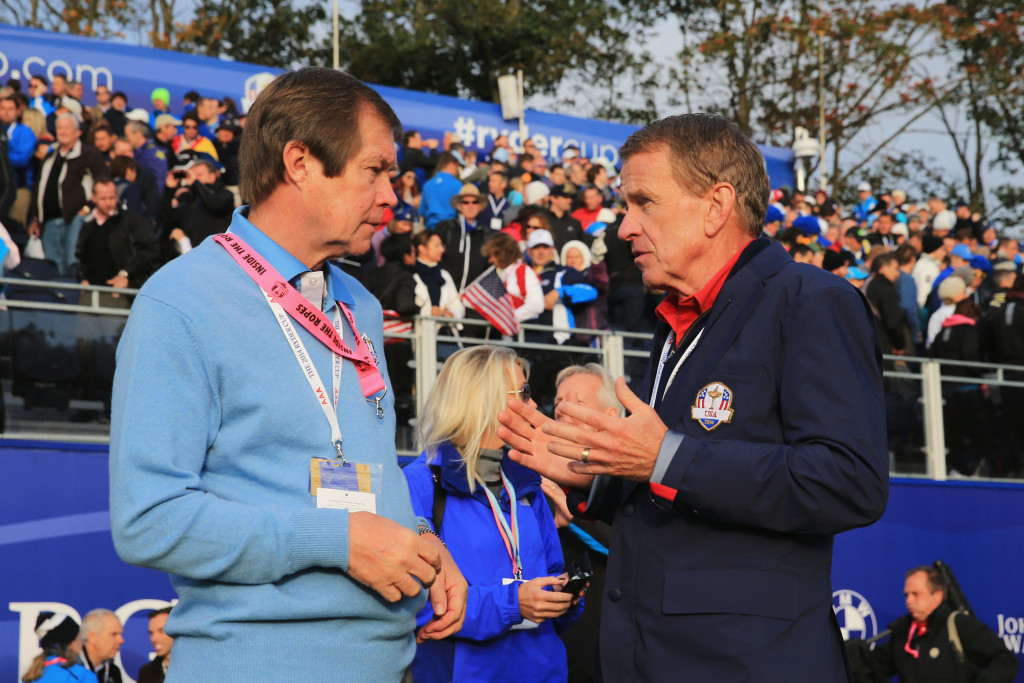
Tim Finchem, PGA of America Commissioner (right), talking with George O’Grady (Photo by David Cannon/Getty Images)
Closer to home, following the recession in Europe, getting sponsors to write bigger cheques has been a constant battle. However, there has been one avenue that has deliberately not been pursued under the regime of George O’Grady, Pelley’s predecessor.
European golfers are banned from betting on their sport and the bookmakers who pour so much of their profits back into horse and greyhound racing are not entertained as sponsors.
That policy derives from one of maintaining and enhancing golf’s image as a clean sport, and it has its virtues. No one would wish to see golf dragged down like the match-fixing operations exposed in football and cricket.
And as a sport, golf would be open to such corruption given that individuals rather than teams play most and the growth of exchange betting might enable individuals to win money by missing putts.
But the compromise that Pelley should make is to continue with the ban on players betting, but make sure that the Tour gains a share of the profits the bookies make for bets placed on the sport.
And, talking of the sport’s clean image, there are two other policies that Pelley really needs to look at inside the files of the Tour’s headquarters at Wentworth.
The membership rules for the European Tour do include a disciplinary procedure that should be launched against members who break them, with offences ranging from the likes of being caught betting to swearing loudly and often in front of the television cameras.
But very rarely – and only recently in the cheating case allegations against Simon Dyson – are such hearings and their outcomes made public in the same way that footballers get banned after being shown a red card.
Similarly, the Tour has a strict anti-doping policy and random testing which conforms to the WADA anti-doping scheme. But the results of those tests are never put out into the public domain, even if only to say that out of 1,000 player tests, not one was proven to be positive.
Hiding the existence of disciplinary or drug miscreants under the carpet only misleads the public into believing the game is clean. But openly showing how harshly those who break the rules are dealt with is surely a better way to make sure we’re maintaining golf’s image.
Welcome to your new job Mr Pelley, and let’s hope your understanding of the media industry helps you cope with some of the issues you are now going to face.
*This article was originally published in TGP on 5 August 2015
Tagged European Tour, Keith Pelley, PGA Tour, Tim Finchem
